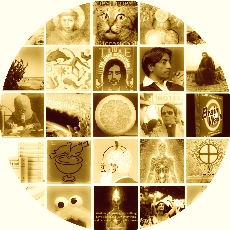Diskussion
En röd tråd genom diskussionen kommer vara den existentiella villkoren. Vi människor är ”irretrievably doomed to live as separate ’in-dividuals’, dependent on each other, divided into two sexes and several generations, vulnerable and mortal…” (Werbart, 2000, sid ?) Vi har att
”acceptera människans existentiella villkor: vår avskildhet som separata individer, vår uppdelning i två kön och omöjlighet att vara båda, uppdelningen i föräldra- och barngenerationerna, vårt åldrande och vår dödlighet.” (Werbart & N, i förordet till Quinodoz, 1996, s.?)
“Att frigöra sig från urscenens tyngd, undfly generationskedjan, att försöka ge liv åt ett barn utan far, eller utan mor, att föreställa sig född av en jungfru eller tro sig vara Gud, representerar utan tvivel lockande möjligheter.” (Chasseguet-Smirgel, 1991, s.30)
”From the psychoanalytic angle, three items stand out clearly; first, we have an overarching presence of infantile omnipotence, the egocentric, unconscious belief in one’s unlimited powers […]; second, we have the urge to fuse regressively with the environment, to attach oneself to the surrounding world (universe) in a way that denies, erases, cancels out the ever-present sense of separation which the cronologically mature individual must cope with during the course of his days on the planet; third, we have a longing for narcissistic inflation, the longing to go about in the belief that one is somehow magical, wonderful […] as opposed to being simply another regular person in the world.
[…]
”I regard New Age thinking as essentially regressive or infantile in nature. It is absorbed, I contend, in matters of symbiotic merger, omnipotence, narcissistic inflation, and in magical thinking and wishing generally. New Age thinking makes war on reality; it denigrates reason; it denies and distorts what I consider to be the existential facts of our human experience; it seeks to restore the past, specifically, the before-separation-world, in an idealized, wish-fulfilling form that has little or no connection to the adult estate.” (Faber, 1996, sid 14-15)
